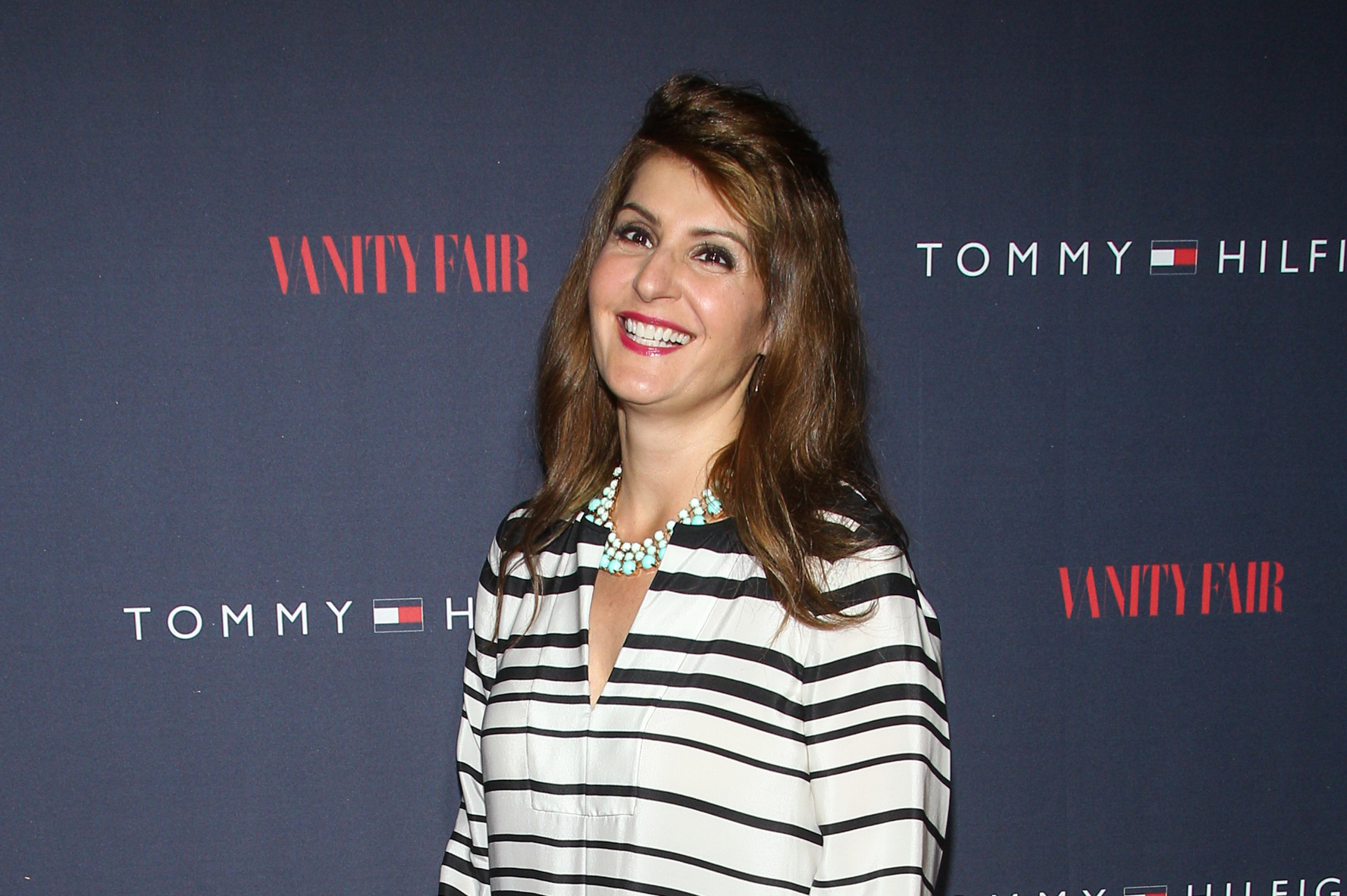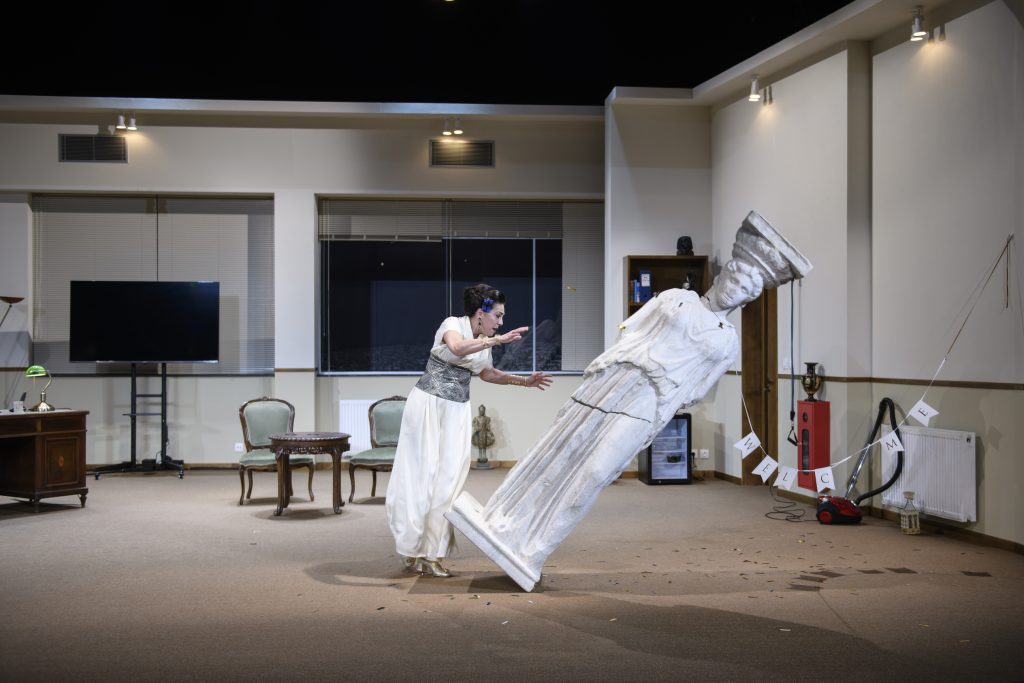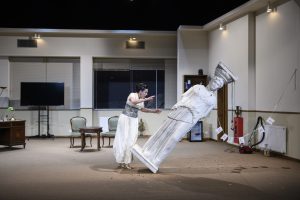Twenty-three years ago, Canadian filmmaker Nia Vardalos introduced a beloved Greek family story to the American film market—and to audiences around the world—with My Big Fat Greek Wedding. Now, she returns to Greece to share a different kind of journey: an American-origin story that speaks to something deeply human and universal.
Tiny Beautiful Things, based on the bestselling book by Cheryl Strayed, is a theatrical meditation on love, loss, healing, and the quiet courage of reaching out. Adapted for the stage by Vardalos, the play premieres at the historic Pallas Theater in the heart of Athens.
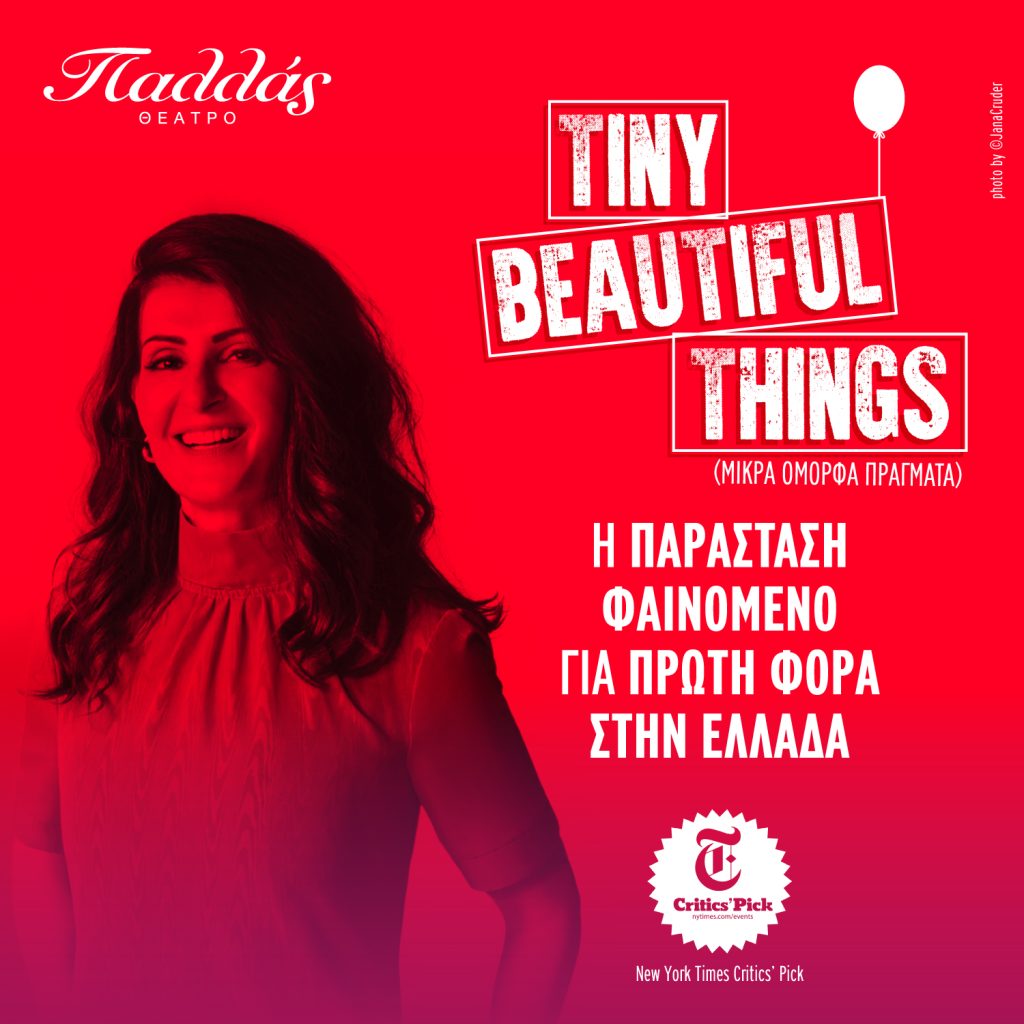
Strayed’s 2012 book—a New York Times bestseller—is a collection of real letters written to her anonymously during her time as the advice columnist “Sugar” for the online literary magazine The Rumpus. In these deeply personal exchanges, Strayed offers heartfelt guidance on grief, heartbreak, hope, and resilience—themes that shape the emotional fabric of the play.
In these deeply personal exchanges, Strayed offers guidance on love, grief, heartbreak, and healing—threads that form the emotional fabric of the play.
Performed in Greek and co-directed by Vardalos (who also stars as Sugar) and Spiros Katsaganis (who also translated the play), the production features a talented trio of Greek actors: Dimitris Papanikolaou, Danai Loukaki, and Dimitris Kitsos.

Nia Vardalos co-stars: Dimitris Papanikolaou
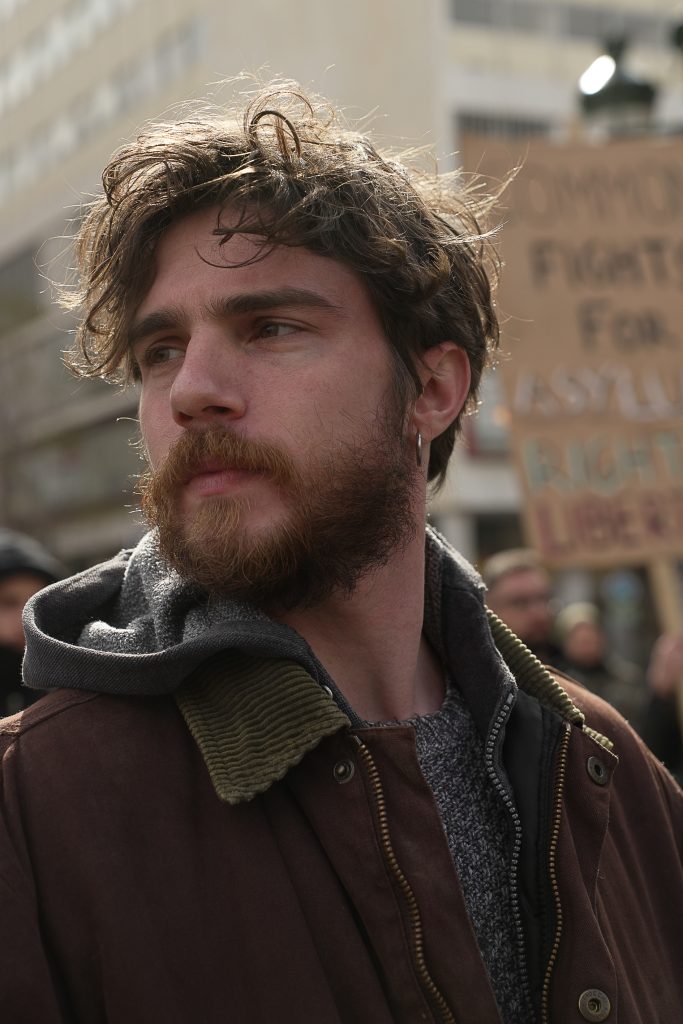
Dimitris Kitsos (Maestro in Blue)
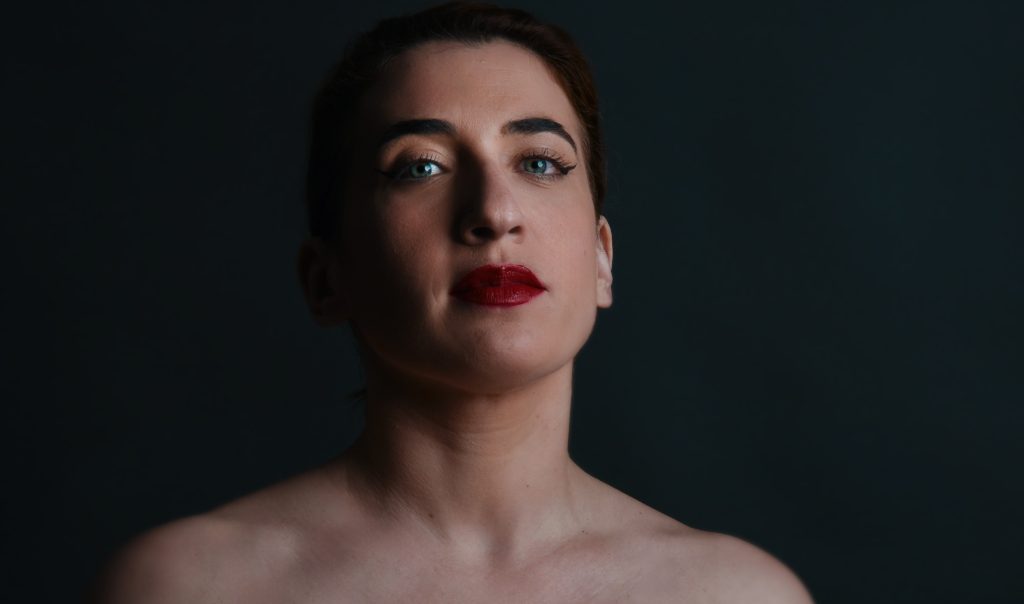
Danai Loukaki
Originally brought to life in New York by director Thomas Kail at the renowned Public Theater, the play went on to tour internationally—from Australia and the Philippines to Mexico—and now finds a new voice in Athens, in the language of Vardalos’s roots.
As The Guardian’s Viv Groskop once described the book, it offers “a rather wonderful portrait of digital, anonymous America.” Through the letters, readers lay bare their most personal struggles, and Sugar answers with striking honesty, empathy, and wit.
“…If it happens in my life, it probably happens in yours too,” Vardalos says. “These letters were written by real people who reached out for help. I admire their courage … and I am thrilled to now share their stories with Greek audiences.”
Ahead of the premiere on May 16, Vardalos spoke with TO BHMA International Edition about what drew her to this project, how it feels to perform it in Greek, and what returning to Greece means to her—on stage and beyond.
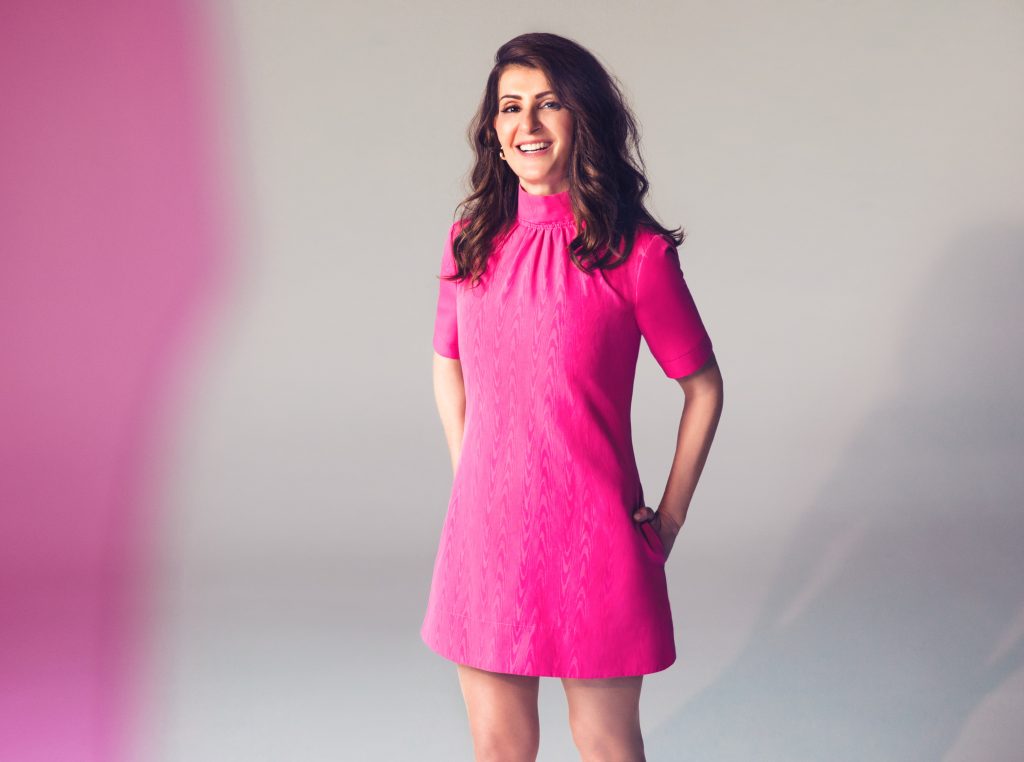
What was it about the story of Tiny Beautiful Things that drew you in and convinced you to adapt it for the stage?
When I read the book, it affected me to realize that all the letters were real. I envisioned the people who had the courage to open their hearts and ask their questions. I saw myself in their stories. Immediately, I felt this could be a theatrical play and I was excited to write it.
After its sold-out run at the Public Theater, Tiny Beautiful Things has traveled to Australia, the Philippines, Mexico, and now Greece. Covering universal themes like love, grief, and resilience, do you think the play will connect with Greek audiences in a unique way? If so, how?
I am excited to connect with Greek audiences and the beautiful material. Our language is filled with metaphor and love. The play’s themes are universal; connection and healing is a journey all humans seek, no matter their ethnicity, age, or country.
How does it feel to perform in Greek and collaborate with a Greek cast?
It’s an incredibly difficult task to re-learn the play in Greek, but I love a challenge. It’s an honor to bring this play to Athens and work with Greek actors and crew. I am grateful to the Pallas for their interest in my play, in the translation by the Athenian Spiros Katsaganis, and for bringing me home.
The letters in Tiny Beautiful Things capture the quiet bravery of reaching out. Do you feel that, as a society, we’re becoming more open to talking about personal struggles? And has working on this play shifted the way you view vulnerability?
If we are fortunate and have a strong support group of friends and family, we do confide in them. Sometimes, people are alone, or they feel they cannot talk about their problems. They don’t feel comfortable being vulnerable, or they don’t want to be open, or they don’t want to be viewed as a problem. I am a person who doesn’t like to burden others with my problems. This is one of the many reasons I admire the letter writers of the book and Cheryl Strayed’s responses. The openness and raw emotions exchanged are beautiful and inspiring. I do think, as a society, we are getting better at telling each other when things aren’t good. Women are more ready to talk about abuse, loss and grief and men are more willing to both listen and share. Being open is a sign of strength and I strive to be more so every day. It’s not easy for any of us. But it’s good to share our pain.
You’ve frequently mentioned the strong network of Greek creatives and professionals in the U.S., especially within the entertainment industry. What does that community mean to you, and do you all share any Greek traditions or holidays together?
I am always happy when I am with Greeks in the diaspora, because we share common values and a love for Greece. We go to the same church in Los Angeles and spend many holidays together.
When visiting Greece, what do you crave the most—in terms of food, culture, or experience?
I miss my friends and family the most, and am always happy to visit with them. I grew up in Canada and we visited our grandparents and cousins during the summers. My parents started a wonderful tradition for us, to know our roots in Greece. And as an adult, I visit Greece as often as I can. My goal is to always create works that will bring me back to Greece.
